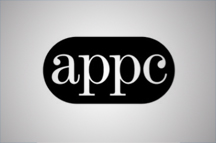 This month Forty Shillings became the newest member agency to join the Association of Professional Political Consultants (APPC). A number of people have, quite reasonably, asked why we took this decision, particularly given that last month Holyrood launched its own statutory lobbying register and three years ago Westminster did the same - 'you're already being regulated by the state so why sign up to a voluntary register?' The answer lies in the APPC's Code of Conduct and because we felt it was a matter of principle that we should adhere to the very highest standards of best practice and ethical behaviour and be open to external scrutiny.
This month Forty Shillings became the newest member agency to join the Association of Professional Political Consultants (APPC). A number of people have, quite reasonably, asked why we took this decision, particularly given that last month Holyrood launched its own statutory lobbying register and three years ago Westminster did the same - 'you're already being regulated by the state so why sign up to a voluntary register?' The answer lies in the APPC's Code of Conduct and because we felt it was a matter of principle that we should adhere to the very highest standards of best practice and ethical behaviour and be open to external scrutiny.
I established Forty Shillings seven years ago and operating ethically and responsibly was one of our seven founding values. I was aware of the APPC and its role in offering confidence to policy-makers and the wider public about the transparency with the policy-making community but association memberships has never been very high on our agenda. Moreover, we have never seen ourselves as ‘lobbyists’ although our work does bring us into contact with decision makers and political representatives.
While we have been members of PRCA and its reporting mechanisms, the leadership team here at Forty Shillings has started to think more about both our own reputation and that of the industry. A question kept coming up: 'are we doing enough to ensure our political engagement work is ethical and transparent?'. It seemed to us that the Westminster Statutory Lobbying Register was actually not covering much of our political engagement: registration is only triggered when the most senior policy makers are lobbied (primarily ministers and permanent secretaries) excluding the vast majority of MPs and peers, and what's more it doesn't cover policy makers in local government - an area in which our team undertakes a significant amount of influencing work.
When we started to look into it, it was also apparent that the Westminster and Scottish Registers did offer some, albeit limited, transparency improvements (the declaration of clients on publicly searchable registers) but there was nothing governing consultants' ethical behaviour. Where was the requirement for staff not to hold Parliamentary passes? Where was the commitment not to pay a sitting MP or peer for their services? Where was the commitment to avoid conflicts of interest? In short, where was the commitment to act ethically? In the absence of any centrally administered code of conduct, these statutory registers have a value, but they're inevitably limited. But by joining the APPC we can satisfy ourselves that we are doing everything that can reasonably be expected of us, and more.
There's also another consideration that became more important as our team grew: as an employer you're responsible for offering professional guidance and counsel often to young people some of whom may be new to the industry. I wanted to ensure that all of my team, particularly those at the start of their careers, would have the chance to understand first-hand the importance of acting with propriety at all times. The APPC's training session for new starters is a great way to embed this and help - hopefully - to educate the next generation about why their behaviour in all dealings with policy-makers is so important for the reputation of not just us, but the entire industry.
At a time when some leading communications firms and agencies operating in and around the political space have been found to act with apparent impunity, we felt it was absolutely the right time to demonstrate our own ethical credentials and send a message to the industry that we stand with all those other agencies who, like us, hold ourselves to the highest standards of best practice and are seen to do so. That is why I am proud to say we are now members of the APPC.














